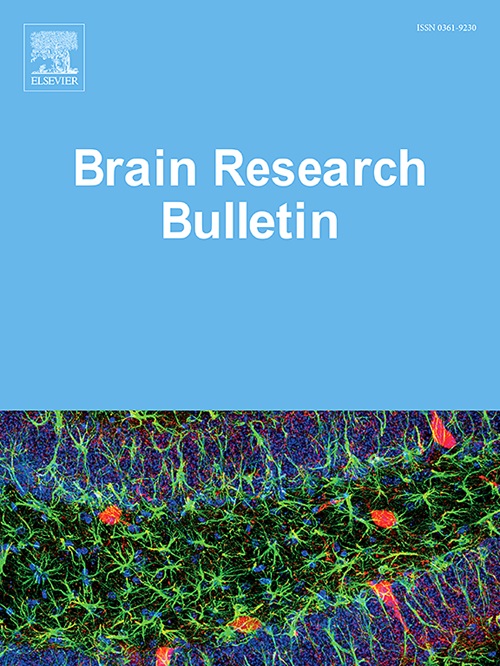Therapeutic potential of mesenchymal stem cell-derived extracellular vesicles in ischemic stroke: A meta-analysis of preclinical studies
IF 3.5
3区 医学
Q2 NEUROSCIENCES
引用次数: 0
Abstract
Background
Ischemic stroke (IS) remains a significant global health burden, necessitating the development of novel therapeutic strategies. This study aims to systematically evaluate the therapeutic effects of mesenchymal stem cell-derived exosomes (MSC-Exos) on IS outcomes in rodent models.
Methods
A comprehensive literature search was conducted across multiple databases to identify studies investigating the effects of MSC-Exos on rodent models of IS. Following rigorous inclusion and exclusion criteria, 73 high-quality studies were selected for meta-analysis. Primary outcomes included reductions in infarct volume/ratio and improvements in functional recovery scores. Data extraction and analysis were performed using RevMan 5.3 software.
Results
Pooled data indicated that MSC-Exos administration significantly reduced infarct size and improved functional recovery scores in rodent models of IS. Treatment within 24 hours and beyond 24 hours of stroke induction both demonstrated substantial reductions in infarct volume/ratio compared to controls. Furthermore, MSC-Exos-treated groups exhibited marked improvements in functional recovery, as assessed by various neurobehavioral tests. The meta-analysis showed no significant publication bias, and heterogeneity levels were acceptable.
Conclusions
MSC-Exos reveal significant therapeutic potential for IS, with evidence supporting their efficacy in reducing infarct size and enhancing functional recovery in preclinical rodent models. These findings pave the way for further research and potential clinical translation.
间充质干细胞来源的细胞外囊泡在缺血性卒中中的治疗潜力:临床前研究的荟萃分析。
背景:缺血性脑卒中(IS)仍然是一个重要的全球健康负担,需要发展新的治疗策略。本研究旨在系统评估间充质干细胞衍生外泌体(MSC-Exos)对啮齿动物IS结果的治疗作用。方法:在多个数据库中进行文献检索,以确定有关MSC-Exos对IS啮齿动物模型影响的研究。遵循严格的纳入和排除标准,选择73项高质量研究进行meta分析。主要结果包括梗死体积/比率的降低和功能恢复评分的改善。使用RevMan 5.3软件进行数据提取和分析。结果:汇总数据显示,给药MSC-Exos可显著降低IS啮齿动物模型的梗死面积,提高功能恢复评分。与对照组相比,卒中诱导后24小时内和24小时后的治疗均显示梗死体积/比率显著降低。此外,通过各种神经行为测试评估,msc - exos治疗组在功能恢复方面表现出显着改善。meta分析显示没有显著的发表偏倚,异质性水平是可以接受的。结论:在临床前啮齿类动物模型中,MSC-Exos显示出显著的IS治疗潜力,有证据支持其减少梗死面积和增强功能恢复的功效。这些发现为进一步的研究和潜在的临床转化铺平了道路。
本文章由计算机程序翻译,如有差异,请以英文原文为准。
求助全文
约1分钟内获得全文
求助全文
来源期刊

Brain Research Bulletin
医学-神经科学
CiteScore
6.90
自引率
2.60%
发文量
253
审稿时长
67 days
期刊介绍:
The Brain Research Bulletin (BRB) aims to publish novel work that advances our knowledge of molecular and cellular mechanisms that underlie neural network properties associated with behavior, cognition and other brain functions during neurodevelopment and in the adult. Although clinical research is out of the Journal''s scope, the BRB also aims to publish translation research that provides insight into biological mechanisms and processes associated with neurodegeneration mechanisms, neurological diseases and neuropsychiatric disorders. The Journal is especially interested in research using novel methodologies, such as optogenetics, multielectrode array recordings and life imaging in wild-type and genetically-modified animal models, with the goal to advance our understanding of how neurons, glia and networks function in vivo.
 求助内容:
求助内容: 应助结果提醒方式:
应助结果提醒方式:


